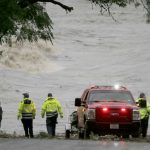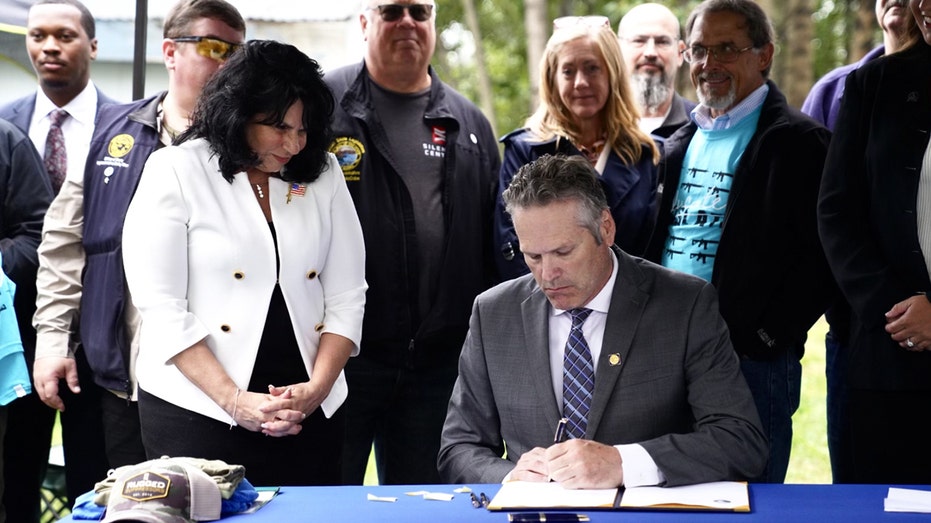Alaska Republican Gov. Mike Dunleavy on Saturday signed into law a measure that seeks to block state and local officials from closing gun stores during disasters declared by the governor, unless such closures apply to all other businesses.
Regarded as a win for Second Amendment supporters and Alaska residents, House Bill 61 — which was championed by Republican House Speaker Cathy Tilton and backed by the NRA — came in response to business closures in Alaska and other states during the coronavirus pandemic and protects a plethora of firearm businesses throughout the state.
“Today is a remarkable day for Alaskans, NRA members, and Second Amendment advocates,” Aoibheann Cline, the NRA Alaska State Director, told Fox News Digital in a statement. “A decade has passed since the last major pro-Second Amendment legislation, House Bill 24, was signed into law on April 11, 2013, reinforcing our ‘Stand Your Ground’ rights. Now, with the NRA-backed House Bill 61, championed by Speaker Cathy Tilton, we witness another significant milestone.”
JUDGE SET TO CONSIDER WHETHER HAWAII CAN CONTINUE TO ENFORCE LAW BANNING FIREARMS ON BEACHES
“The NRA, along with our millions of members, applauds Governor Mike Dunleavy for his unwavering support of our Second Amendment rights and for signing this House Bill 61 into law. This bill is not just legislation; it’s a protective shield for our fundamental rights during states of emergency, reinforcing the core principles of the Second Amendment we deeply respect and uphold,” Cline added. “Today is indeed a great victory for all freedom-loving Alaskans.”
The bill also restricts state and local government entities from restricting an individual’s access to firearms, ammunition, and component parts during declared states of emergency. Prohibitions on gun possession would still apply to individuals who are otherwise restricted from having guns.
Defending the measure, Dunleavy told Fox News Digital that “firearms are an integral part of the Alaskan way of life.”
“We use them for protection and to feed our families, so during an emergency our Second Amendment rights become more important then ever,” he added. “This bill reflects the constitutional right Alaskans have to keep and bear arms by protecting access to both firearms and ammunition when Alaskans need it the most.”
‘TACTICAL RETREAT’: DEMOCRATS POSTPONE BLUE STATE GUN REFORM BILL AFTER CHAMBERS CLASH
Prior to Dunleavy signing the measure into law, the bill passed the state Senate 17-3 in May and was returned to the House for a concurrence vote. The House agreed 28-12 to pass the bill one day later.
State Sen. Jesse Kiehl, a Democrat from Juneau, Alaska, was against the measure, calling it a “special rights bill” and objecting to the NRA’s lobbying efforts on the legislation. The bill “elevates in Alaska law the Second Amendment above all the rest of our rights,” Kiehl said, according to the Juneau Empire.
State law allows a governor to declare an emergency if the governor finds a disaster has occurred or is “imminent or threatened.” Disaster emergency proclamations are not to remain in effect for longer than 30 days unless extended by the legislature.
Dunleavy issued a series of public health disaster emergency declarations during the pandemic. A 2020 order by Anchorage’s then-mayor was cited by Tilton’s office as an example of a situation in which there were gun store or shooting range closures during an emergency declaration. The city had issued its own emergency proclamation.
Dunleavy’s signing of the measure comes one decade after the state enacted House Bill 24 – also known as the “Stand Your Ground” law – in 2013.
The Associated Press contributed to this report.
























